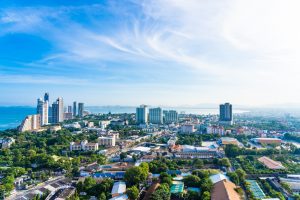It is important to save for a rainy day and to meet long-term goals such as purchasing a house, funding your kids’ education or building a retirement fund.
However, this may have taken a back seat since the onset of the pandemic, as Malaysians cope with the financial demands that came with going through the Movement Control Orders (MCO).
Or, perhaps the challenging economic environment made you review your finances while boosting your resolve to save more when the situation improves.
In any case, if your income remained stable throughout this period, the lifestyle adjustments you made over the past year could inadvertently provide room for you to save more money.
Here are four ways the new norm may have modified your daily routines and money habits for the better
1. Cancelation of travel plans
Border closures and lockdown policies around the world have grounded almost all non-essential international flights.
Domestically, aside from the brief opening of interstate borders, you would have been confined to your own districts for the most part.
While these restrictions may have dampened your wanderlust in the short term, unspent expenses on airfares, hotel stays and foreign currency exchange rates can add up to a significant amount over time.
For those who took advantage of the government’s domestic tourism campaign last year, there is the special one-off personal tax relief claim that can be applied during this tax season.
Both the added tax savings and funds previously earmarked for travel can be channelled towards your savings plan.
2. Reduced time on the road
One of the perks of working from home is that your “office” is now just a few steps away from the bedroom.
Not only do you save on time spent commuting, not having to sit through rush hour traffic is also beneficial for your mental and emotional health.
In financial terms, you get to save on the amount spent on petrol. It also means less wear and tear for your vehicle, which translates into fewer costly visits to the workshop.
The environment benefits too without CO2 emissions from gridlocked highways when fewer people drive their cars.
Other than that, working from home also mean less money spent on basement parking in the office.
If the above applies to you, then consider allocating the unutilised balance from your transportation budget into your savings.
3. More meals at home
When working from home, you are likely to spend more time cooking your own meals and eating at home.
Besides being kinder on your wallet, cooking is also a useful life skill to master because you are more likely to eat healthier when you prepare your own food.
According to a World Bank study in 2019, millennials in Malaysia spend almost 40% of their income on food.
If you have not been tracking how much you are spending on dining out in the past, now is a good time to get into that habit.
The savings from reduced expenditure at cafes and restaurants could be reallocated into your savings pot.
4. Less discretionary expenses
With standard operating procedures in place to combat the spread of COVID-19, new ways of staying connected with each other could indirectly reduce your discretionary expenses.
For example, connecting with friends and families through virtual gatherings during religious and cultural festivals removes the cost associated with hosting or catering for open house festivities.
Likewise, spending more time at home means less one-off expenses incurred through get-togethers with friends, colleagues or family members who are not living with you.
Aside from social events, there could be other discretionary expenses that you may have spent less on this past year too. Consider reassigning these unused funds into your savings jar.
Put your extra savings to work
While there may still be some way to go before everyone’s daily lives fully return to pre-COVID patterns, the current situation presents an opportunity to revisit your financial priorities, such as saving for your retirement.
After optimising your lifestyle and spending patterns to the new norm, consider putting the funds you inadvertently saved into the Private Retirement Schemes (PRS), a voluntary and long-term savings scheme designed to help Malaysians save more for retirement.
Established in 2012 and regulated by Securities Commission Malaysia, PRS offers a choice of 8 PRS Providers and 58 PRS funds spanning both conventional and Shariah-compliant investments in various asset classes and geographic regions.
PRS Members can choose to save in one or more PRS funds which meet their retirement goals and risk appetites.
Those new to investing may opt for the Age-Based Default Option, a unique feature of PRS which automatically assigns the suitable PRS fund for you based on your age.
During this pandemic, traffic to e-commerce platforms and online transactions have soared. Similarly, enrolments increased by two-fold via PRS Online, a service developed by Private Pension Administrator Malaysia (PPA), the central administrator for PRS.
With PRS Online, it is easy, convenient and secure to deposit additional savings into your PRS account.
Even if you start small with RM100, a monthly top up of RM100 over 30 years will result in about RM100,000 in savings, assuming a return of 6% per annum.
Below is a summary of PRS fund performance according to categories:

Source: Morningstar
*Annualised return over a 5-year period up to 28 Feb 2021
Find out how to get closer to your retirement savings goal by using PPA’s retirement calculator to design an accumulation plan.
What’s more, your PRS contributions is eligible for a personal tax relief of up to RM3,000 per annum, giving you an additional tax savings of up to RM900, depending on your tax bracket for assessment year 2021.
Every ringgit counts in your retirement savings journey, so mind your savings and put it to work by letting time and the power of compound growth work in your favour.



